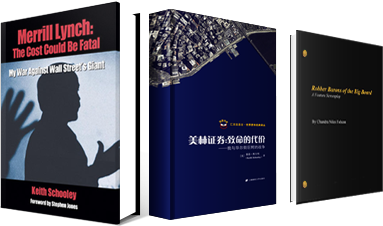ENID, OKLAHOMA, Sept. 17, 2014
The screenplay based on the true story Merrill Lynch: The Cost Could Be Fatal—My War Against Wall Street’s Giant, by Keith Schooley, is gaining attention from potential backers due to the recent surge of lawsuits and settlements against the firm that today is no more than a unit of Bank of America.
Greed Index, written by acclaimed investigative reporter Chandra Niles Folsom, recounts the lead up to the collapse of Merrill Lynch as told by Schooley—a former top selling broker at the company, who exposed gross fraud and corruption there.
A recent Fortune article reported that the firm is paying nearly $100 million in settlements related to overcharges to mutual fund customers’ retirement accounts and to charities.
That news took a back seat when the Justice Department announced a record breaking $17 billion settlement had been reached with Merrill’s parent company related to fraudulent marketing of mortgage-backed securities that led to the economic meltdown.
Let’s put that into perspective. $17 billion is higher than the GDP of 102 countries.
This is the largest DOJ settlement by far. Yet, while millions of Americans lost their homes, BofA had argued it should not be held liable for the deceptive subprime mortgage products issued by its bad seed.
Taking a walk down Bad Memory Lane, Merrill’s first “unprecedented” $100 million settlement was paid to the state of New York in 2002, and another $250 million to hundreds of women in a class action suit, $160 million more in another class action suit to settle racial discrimination claims on behalf of 700 black brokers, among numerous other claims and settlements. Then there was the Senate subcommittee probe that led to convictions of four Merrill Lynch executives, and the very bad thing Martha Stewart did that landed her and her Merrill broker in the slammer.
The recent nationally-publicized cheating scandals involving the Notre Dame football team, Harvard students, and the Air Force nuclear launch officers (all at institutions once touted for their honor and integrity) pale in comparison to the one at Merrill covered up by the board and uncovered by Schooley, as chronicled in his book and in the screenplay.
“The corporate culture when I was there encouraged dishonesty in pursuit of the almighty dollar and it appears that culture has not changed,” said Schooley.
Even its attempts to rebrand itself as Merrill Edge seem to have only encouraged the bad boys at Merrill to fall off the edge themselves.
Greed Index has been acclaimed by critics at, among others, Futures magazine, and Shanghai University of Finance and Economics Press has included the book in The World Classics of Investment series.
